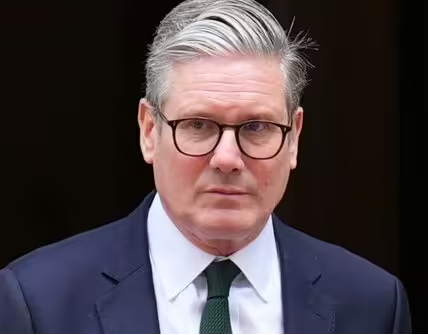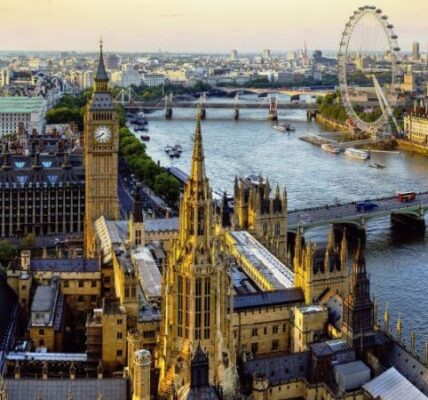Economic forecasts have changed “dramatically” since the autumn Budget was announced, an expert has said.

There are claims that Rachel Reeves’ Budget will push inflation higher than previously forecast (Image: GETTY)
Chancellor Rachel Reeves’ ambitious spending and borrowing plans outlined in the autumn Budget are expected to slow the decline in UK interest rates and push inflation higher than previously forecast over the next two years, according to a new report.
The Organisation for Economic Co-operation and Development’s (OECD) annual economic survey revealed that measures, including a £70billion annual increase in public spending funded by higher taxes and borrowing, are likely to raise UK inflation to 2.7% in 2024, up from the previous estimate of 2.4%.
While inflation is expected to cool to 2.3% by 2026, it will still exceed the Bank of England’s target of 2%.
Interest rates, currently at 4.75%, are forecast to fall more slowly, reaching 3.5% by early 2026.
This slower decline is due to fiscal measures in the Budget, which represent a shift towards short-term fiscal loosening despite a longer-term tightening of policy. While global economic growth remains resilient, the UK’s GDP growth forecast has been downgraded to 0.9% for 2024, down from 1.1%.
Here’s what the Labour Budget could mean for your finances based on this forecast.

Economic forecasts have changed “dramatically” since the autumn Budget was announced (Image: Getty)
Mortgage interest rates
The persistence of inflation as outlined in the report means the Bank of England may maintain higher interest rates for longer than expected, keeping mortgage rates elevated.
As the base rate is forecast to fall more slowly, lenders will likely adjust mortgage rates at a slower pace, leading to higher borrowing costs for homeowners with variable-rate mortgages or those seeking new fixed-rate deals.
Justin Moy, managing director at EHF Mortgages, noted that the slower decline in the base rate will “inevitably” keep mortgage rates expensive in the short term. He added: “The effects of the October budget still need to be factored into our economy, but borrowers will again have to shoulder the financial burden of this Government blundering performance.”
Ben Perks, managing director at Orchard Financial Advisers, commented: “Before the Budget, many economists were predicting that the base rate would fall to 3% by the end of next year. This has changed dramatically over the past few weeks. Now predictions are around 4%, namely a much slower decline throughout 2025. For borrowers, this means the road to recovery looks a little slower.”

The persistence of inflation means the Bank of England may maintain higher interest rates for longer (Image: Getty)
However, Mr Perks noted: “Things should improve. Next year will see some of the dreaded Truss remortgages coming up for renewal and they’ll feel a benefit as they could drop from the 6’s to the 4’s. So for some, next year will provide some respite for the high bills they’ve been enduring.”
Peter Stimson, head of product at MPowered Mortgages, added: “The first weeks of January could see competition increase as lenders slug it out to win the business of the thousands of first-time buyers rushing to complete their purchases before the Stamp Duty bands change in April.
“While the unwelcome return of inflationary pressure could lead the Bank of England to slow the pace of any future reductions in its Base Rate, some mortgage lenders may take the commercial decision to pare their margins right back and cut their rates aggressively during what could be a very busy and competitive January.”
Living costs and wages
Higher inflation and slower interest rate reductions are also expected to prolong the cost-of-living crisis. With inflation exceeding forecasts next year, prices for goods and services will likely rise, stretching household budgets further.
A coalition of major UK retailers, including Tesco, Amazon, John Lewis, and Aldi, recently warned that the Budget could lead to job losses, higher prices, and store closures
Starting in April, businesses will face higher National Insurance Contributions (NICs), costing British retailers an additional £2.33billion per year. Additionally, a £2.73billion increase from the minimum wage hike and a new £2billion packaging levy are expected to further increase costs for retailers.
These factors are likely to push up living costs, slow wage growth, and result in job losses, particularly in entry-level positions. The retailers warned that “the sheer scale of new costs and the speed with which they occur create a cumulative burden” that will make job losses and higher prices inevitable.
Anita Wright, an independent financial adviser at Bolton James, commented: “Rising inflation will likely exacerbate the cost-of-living crisis, particularly in essential areas like food prices. Households will likely face sustained high grocery costs as supply chain challenges and rising production expenses persist.”
Ms Wright also pointed out that a slower reduction in interest rates could dampen economic growth.
She said: “Higher borrowing costs will continue to weigh on both consumer spending and business investment, potentially limiting GDP expansion. While tight labour markets may support wage increases in some sectors, real wage growth could remain subdued as inflation continues to erode purchasing power. This risks a prolonged squeeze on disposable incomes, further impacting consumer confidence.”
Gabriel McKeown, head of macroeconomics at Sad Rabbit Investments added that Bank of England policymakers now face “a delicate balancing act”, with the need to combat inflation without stifling growth, which could present “a formidable challenge”.


